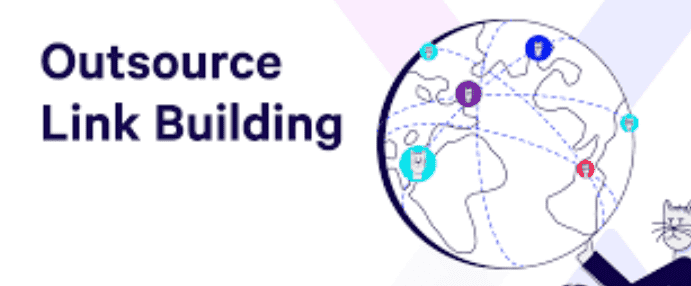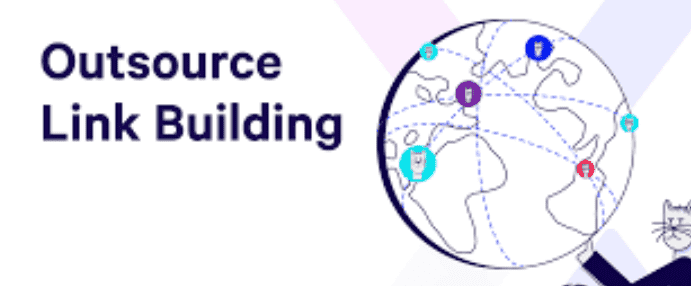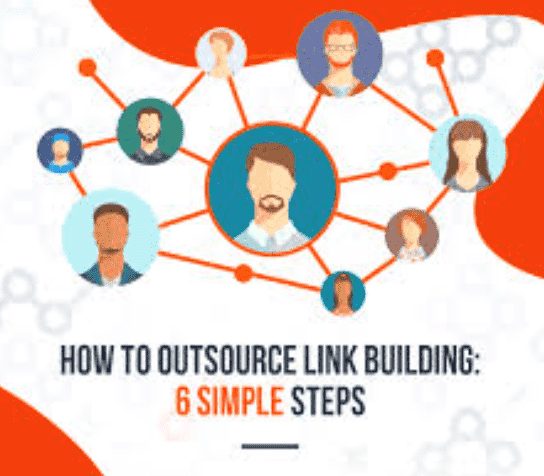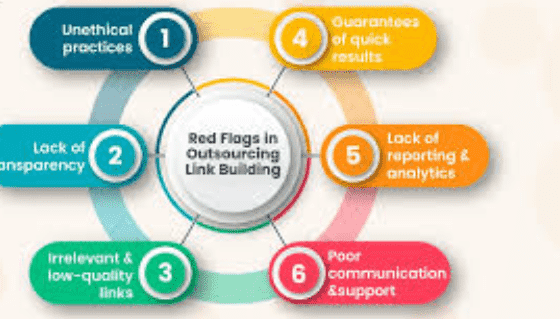outsource backlink building: introduction
Outsourcing backlink building includes hiring an outdoor your own business or freelancer to create again-hyperlinks in your website. Backlinks, or inbound hyperlinks, are links from other websites that are very important to your website. In SEO (seek engine advertising and marketing), you can make your website’s authority and seek search engine ranking.
Here’s an in-depth breakdown of the way and issues for outsourcing backlink construction:
Understanding Backlink Building
Importance:
Backlinks signal to search engines like Google that your content is valuable and sincere. High-quality backlinks from legit sites can improve your website’s search engine marketing.
Types of Backlinks:
Some examples are writing links, guest blogs, business listings, social media links, forum comments, and more.
Advantage of Outsourcing
Expertise:
Professional companies or freelancers specialize in one-way link constructing, possessing the skills and knowledge to create powerful hyperlink-building techniques.
Time-Saving:
Putting together excellent one-way links is time-consuming. Outsourcing allows you to focus on middle-level business tasks while experts oversee hyperlink-building.
Resources:
Agencies often have relationships with high-authority websites, which can be leveraged to build good backlinks creatively.
Finding the Right Partner
Research:
Look for agencies or freelancers with an example of a song file. Look at their work, case studies, and consumer testimonials.
Services Offered:
Ensure they provide complete one-way link services, including improving the method, creating content, and acquiring hyperlinks.
Transparency:
The organization should be open about how it works and provide regular reviews of development and results.
Backlink Building Strategies
Guest Posting:
Writing articles for other websites with a link returned to your website online.
Content Marketing:
Producing great stuff that draws inbound links.
Broken Link Building:
Find damaged links on other websites you should provide your information instead.
Skyscraper Technique:
Identifying popular content material, developing higher variations, and reaching out to people related to the unique content material.
Resource Link Building:
Indexing your content on aid pages relevant to your business.
Quality Control
Link Quality:
Focus on getting one-way links from reliable, excessive-authority sites applicable to your area of interest.
Avoid Black Hat Techniques:
Ensure the business uses ethical practices. Avoid link schemes, paid links, or other manipulative methods that may result in penalties.
Diverse Link Profile:
Many one-way link profiles (particular types of links from different sources) are essential for herbal hyperlink-building.

Monitoring and Reporting
Regular Updates:
The business has to offer daily updates during the development of the back link-building campaign.
Metrics to Track:
Important metrics encompass the number of backlinks acquired, the first-class and authority of the linking sites, referral website visitors, and upgrades in search engine scores.
Adjustments:
Based on overall performance reviews, Changes may be needed to optimize the effects.
Costs
Pricing Models:
Agencies can also rate on a line with a hyperlink foundation, month-to-month retainer, or mission-based pricing. Understand the pricing criteria and make sure it aligns with your finances.
ROI:
Consider the go-back on investment. Quality backlinks can provide lengthy-term search engine marketing benefits, get more natural traffic, and doubtlessly lead to better conversions and sales.
Foundation Backlinks Building
Understanding the Basics of Backlinks
Backlinks, which are also called inbound or outbound links, are links that go from one website to a page on another website. They are essential for SEO because search engines like Google remember them as votes of faith in the content. When other websites link to your content, it tells search engines it is valuable and trustworthy.
How Backlinks Work:
When a website hyperlinks in your website, it sends a signal to search engines like Google and Yahoo that your content material is authoritative and relevant. This can help improve your website online’s rating on seek engine effects pages (SERPs).
Anchor Text:
The clickable textual content in a link. Search engines use the anchor text to understand the context of the related page. Relevant and descriptive anchor text can improve the ranking for specific key phrases.
Link Juice:
A colloquial term for the cost of authority that a oneway link passes from one website to every other. High-authority sites bypass even more excellent link juice.
Different Types of Backlinks
Not all one-way links are created equal. There are many connections, each with a different level of importance or effect on your SEO.
Natural Backlinks:
These are earned organically, as other websites hyperlink your content material with no movement on your part. This usually takes place while your content material is truly valued.
Manual or Outreach Backlinks:
Getting something on purpose efforts, guest blogging, partnerships, or outreach campaigns. This entails reaching out to other sites and asking for a hyperlink.
Self-Created Backlinks:
These are links you create yourself, such as comments on blogs, notes on message boards, or internet listings. They are often thought to be of low quality and can look like spam if overused.
Editorial Backlinks:
Links can be provided using different websites because these people find your material especially valuable and authoritative. These are commonly the most helpful forms of one-way links.
Nofollow vs. Dofollow:
These links have a tag that tells search engines like Google Now not to follow the link, which means they do not pass hyperlink juice. Dofollow But links get around hyperlink juice and are more valuable for search engine optimization.
Quality vs. Quantity in Backlink Building
The age-old debate of high When it comes to SEO, it’s essential to focus on quality over number. It involves one-way links.
Quality of Backlinks:
Relevance:
Website links applicable to your niche or business are more treasured.
Authority:
Links from high-authority websites with more authority, like news sites, schools, or trustworthy blogs, are more critical.
Trustworthiness:
Links from websites with a fantastic reputation and an easy inbound link profile contribute positively to your SEO.
Anchor Text:
Links with relevant and sundry anchor textual content can give you extra search engine improvement benefits.
Quantity of Backlinks:
Diversity:
Many one-way links from different websites can illustrate to engines like Google that your website is popular and truthful.
Consistency:
Acquiring continuous one-way connections over the years is more valuable than an unexpected spike, which could look shady to SERPs.
Natural Growth:
Many backlinks must develop naturally over the years, reflecting proper interest in your content.
Quality vs. Quantity:
Prioritize acquiring notable backlinks from authoritative and relevant websites over accumulating excessive low-best hyperlinks.
A few fantastic backlinks can notably improve your search engine optimization compared to many low-great links.
However, a fair approach works best for many one-way link profiles with good links. And affordable natural links.
Forum Backlink Building
Utilizing Online Communities for Backlinks
Forums and online communities may be precious sources for constructing backlinks. They offer a platform where users with unusual interests talk about various topics, share facts, and provide advice. Participating in those communities can help you generate oneway links that look good together with your target audience.
Relevance:
Ensure that the forums you choose apply to your area of interest or industry. Links from related boards are more precious and credible.
Engagement:
Active participation in discussions no longer only helps in backlink construction but also makes you a leader in the community.
Value Addition:
Providing precious insights and solutions and keeping records makes it more likely that people will see and like your posts, the chances of your hyperlinks being clicked and accompanied.
Strategies for Forum Posting
Effective writing on a conversation board involves more than just dropping hyperlinks. It requires a strategic approach to maximize the benefits and avoid being seen as spam.
Profile Setup:
Complete Profile:
Fill out your profile with essential records and a hyperlink to your internet site.
Avatar and Signature:
Use a recognizable avatar and include a non-spammy hyperlink to your website in your signature.
Finding the Right Forums:
Relevance:
Select boards that could be carefully associated with your industry or niche.
Activity Level:
Choose forums with high pastime stages to ensure your posts get visibility.
Active Participation:
Regular Contribution:
Regularly participate in discussions and solution questions and provide valuable insights.
Starting Threads:
Initiate discussions on applicable topics to draw interest in your understanding and link lower back for your website online.
Quality Posting:
Helpful Content:
Ensure your posts upload price and apply to the network.
Natural Linking:
Include links in your posts where they may be helpful and add to the conversation.
Avoid Overlinking:
Don’t include a link in each post; this could seem spammy. Balance your posts with and without links.

Ethical Considerations in Forum Backlinking
Include links in your posts where they may be helpful and add to the conversation. Ethically, this is essential to maintaining credibility and avoiding penalties from engines like Google.
No Spamming:
Avoid posting hyperlinks indiscriminately. Spamming forums can lead to bans and harm your recognition.
Transparency:
Be clear about your affiliations. If you are linking to your content, divulge this information if necessary.
Follow Forum Rules:
Each forum has its regulations and recommendations. Adhere to those policies to maintain an exact position in the network.
Quality over Quantity:
Focus on what is unique to your interactions instead of the number of links. Meaningful contributions are more valuable.
Avoid Automated Tools:
Do not use computers to share links on boards. With this gear, you might get bad backlinks and even be marked as spam without any problems.
Respect the Community:
Engage with the community respectfully and thoughtfully. Building and accepting Assigning ties as correct is more valuable than just adding links.
Press Release Backlinks Building
Using Press Releases for search engine optimization
Press releases may be a powerful device for search engine marketing when used effectively. They can generate backlinks, force traffic, and increase your online visibility. Here’s how press releases make contributions to SEO:
Authority and Credibility:
Press releases published on official news websites can improve your site’s authority and credibility. When authoritative websites hyperlink for your content, it signals to engines like Google that your site is honest.
Keyword Optimization:
Including applicable keywords in your press release can help it rank for those keywords, which can attract natural website visitors.
Content Distribution:
If you write a good press release, many news websites and information stores may pick it up and link back to your website.
Brand Awareness:
Press releases help spread the word about your brand, product launches, or other significant events, which raises awareness and attracts potential clients.
Distributing Press Releases Effectively
Effective distribution is prime to maximizing the impact of your press releases. Here are techniques for distributing press releases:
Choose the Right Distribution Channels:
News wire Services:
Use a trustworthy news wire service like PR News wire, Business Wire, or PR Web to distribute your press launch to a vast target market.
Targeted Outreach:
Identify newshounds, bloggers, and influencers in your industry and ship them personalized pitches at the side of your press release.
Industry-Specific Platforms:
Utilize industry-unique information websites and systems that are interested in your information.

Crafting the Press Release:
Compelling Headline:
Write a sturdy, attention-grabbing headline that conveys the main message.
Informative Content:
Ensure the content is newsworthy and affords all required records, such as the who, what, while, where, and why.
Multimedia Elements:
Include snapshots, movies, and infographics to entice the press launch.
Timing and Frequency:
Timing:
Distribute your press release at the most beneficial times for your audience. Consider the timing of substantial business events, product launches, or other activities that apply.
Frequency:
Avoid overloading with press releases. Focus on rare occasions and relevance in place of frequency.
Follow-Up:
Personalized Follow-Up:
After distribution, follow up with critical journalists or influencers to ensure they received the discharge and give more paperwork if asked.
Build Relationships:
Cultivate ongoing relationships with media contacts for future press releases and collaborations.
Measuring the Impact of Press Releases
To decide the effectiveness of your press releases, It’s important to know the level of their impact. Here are techniques to evaluate the satisfaction of your press release campaigns:
Track Backlinks:
Monitor Links:
Use gear like Ahrefs, Moz, or Google Search Console to track one-way links generated out of your press release.
Quality of Links:
Assess the quality and authority of the websites linking back to you.
Analyze Traffic:
Referral Traffic:
Use Google Analytics to change how many people visit your site from other websites that posted your press release.
Behavior Metrics:
Analyze metrics like jump price, time on site, and pages according to consultation to attract unique site visitors.
Media Coverage:
Coverage Volume:
Measure the variety of media retailers and websites that picked up your press launch.
Sentiment Analysis:
Evaluate the tone of the news to understand how your news is being acquired.
Engagement Metrics:
Social Shares:
Track social media stocks, likes, comments, and your news statement to see how well it’s being received.
Direct Responses:
Monitor direct questions, sign-ups, or other responses that can be attributed to the clicking release.
SEO Performance:
Keyword Rankings: Track changes in keyword rankings related to the click-launch content material.
Domain Authority:
Watch out for changes to your website’s area authority over the years.
Business Outcomes:
Leads and Sales:
Check out any rise in leads or sales following the click launch.
Brand Mentions:
Track will increase logo mentions and website visibility.
Conclusion
Outsourcing inbound link construction may be a strategic move to decorate your search engine optimization efforts, let you choose the right partner, and do certain moral practices. By leveraging the know-how and sources of professionals, you could build a sturdy one-way link profile that enhances your website’s authority and search engine ranking.
